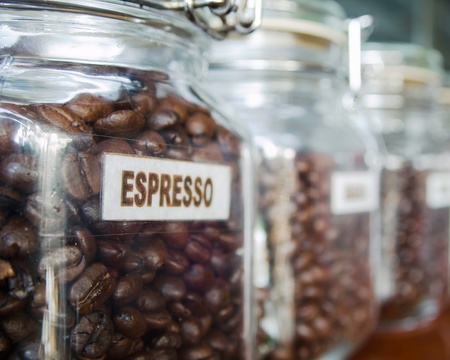Overview of Reusable Coffee Initiatives Across the U.S.
Coffee culture is a big part of daily life in America, but it also brings a mountain of single-use cup waste. With millions of coffee cups thrown away each day, cities and states across the U.S. are stepping up to encourage more sustainable habits. By focusing on reusable coffee practices, local governments aim to tackle environmental concerns and make eco-friendly choices easier for everyone.
Why Focus on Reusable Coffee Cups?
The push for reusable coffee solutions comes from growing awareness about the environmental impact of disposable cups. Most single-use coffee cups are lined with plastic, making them tough to recycle. As landfills fill up and recycling programs struggle, switching to reusables is seen as an easy way for both businesses and customers to help the planet.
Key Reasons Cities and States Are Taking Action:
- Environmental Impact: Reducing landfill waste and pollution
- Cost Savings: Lowering costs for waste management
- Community Engagement: Encouraging local pride in sustainability efforts
- Public Health: Promoting cleaner, safer practices during beverage consumption
Popular Approaches to Sustainable Coffee Practices
Cities and states use different strategies to get people on board with reusable cups. Some offer rewards, while others set rules for businesses. Here’s a quick look at what’s happening across the country:
| City/State | Main Initiative | Description |
|---|---|---|
| California (statewide) | Bans & Incentives | Banned single-use plastics in many areas; offers discounts for bringing your own cup. |
| Portland, OR | Cup Fee Ordinance | Charges an extra fee for disposable cups at cafes to encourage reusables. |
| Seattle, WA | Coffee Shop Requirements | Mandates all food service businesses accept customer-provided reusable cups. |
| Austin, TX | Zero Waste Goals | Encourages reusable cups as part of city-wide zero waste initiatives. |
| New York City, NY | Pilot Programs | Runs pilot programs testing reusable cup sharing systems in select neighborhoods. |
The Growing Popularity of Cup-Sharing Programs
A new trend emerging in some American cities is the introduction of cup-sharing programs. These let customers borrow a reusable cup from their favorite café or coffee shop and return it later for cleaning and reuse—making it even easier to skip disposables without having to carry your own cup everywhere.
Legislative Actions Promoting Reusable Cups
Across the United States, cities and states are rolling out new laws and policies to cut down on single-use coffee cups. These legislative actions aim to encourage coffee lovers to switch to reusable options, helping both the environment and local communities. Here’s a closer look at some of the most notable regulations around the country.
State-Level Laws and Regulations
| State | Key Legislation | Main Focus |
|---|---|---|
| California | Single-Use Foodware Ordinances (varies by city) | Bans or charges on single-use cups; incentives for bringing your own cup |
| Oregon | Reusable Cup Mandate (Portland) | Coffee shops must accept clean reusable cups brought by customers |
| Washington | Disposable Cup Fee (Seattle) | $0.25 fee added to every disposable cup sold in cafes |
| Vermont | Single-Use Products Law | Bans certain single-use plastics including stirrers and straws; encourages reusables in cafes |
| Maine | Single-Use Plastic Ban | Bans polystyrene foam cups; promotes alternatives like reusable mugs |
City-Specific Initiatives
- Berkeley, California: Requires all coffee shops to charge $0.25 for each disposable cup. Many shops offer discounts for customers who bring their own reusable mug.
- New York City: Several pilot programs encourage businesses to provide reusable cup share options or discounts for using personal cups.
- Austin, Texas: Launched city-wide campaigns promoting “Bring Your Own Cup” days at local coffee shops with special offers.
- San Francisco, California: Enforces strict composting and recycling rules that include guidance on switching to reusables in food service locations.
The Role of Incentives in Legislation
Laws don’t just ban disposables—they also make it easier and more rewarding for people to use reusables. For example, some states require coffee shops to accept customer-supplied clean mugs, while others offer tax breaks or grants for businesses adopting sustainable practices. These incentives help change habits without making things inconvenient for customers or café owners.
What Does This Mean for Coffee Drinkers?
If you love grabbing coffee on the go, you might notice more signs encouraging you to bring your own cup—or see small fees added when you use a disposable one. The good news is that these changes are making it simple and affordable to enjoy your daily brew while being kinder to the planet.
![]()
3. Local Incentive Programs and Partnerships
Across the United States, cities and states are teaming up with local businesses to inspire more people to choose reusable coffee cups over single-use disposables. These creative partnerships use a variety of incentives that make eco-friendly habits not just easy, but rewarding too.
Discounts at Your Favorite Coffee Shops
One of the most popular ways to encourage reusable cup use is through discounts. Many coffee shops, from big chains to local cafés, offer a small price break—often 10 to 50 cents—when customers bring their own cup. Some cities have worked directly with businesses to promote these discounts through public campaigns or even city-sponsored sticker programs that identify participating locations.
Examples of Discount Programs
| City/State | Incentive | Participating Businesses |
|---|---|---|
| Portland, Oregon | $0.25 discount for reusable cups | Local cafés and some national chains |
| San Francisco, California | $0.25 required charge for disposable cups (BYO cup gets no charge) | Coffee shops citywide |
| Seattle, Washington | $0.10 discount for bringing your own mug | Major chains and independent shops |
| Boulder, Colorado | Punch card rewards for repeated reusable cup use | Select local coffee houses |
Reward Programs and Loyalty Points
Some places go beyond simple discounts by offering loyalty points or punch cards. For example, after a set number of visits with a reusable cup, customers might earn a free drink or special merchandise. This approach taps into the American love of rewards and gamification, making sustainability fun and motivating.
Sample Reward Structures
- Punch Cards: Get a stamp each time you bring your own cup; after ten stamps, enjoy a free coffee.
- Loyalty Apps: Earn double points on your coffee shop app when using a personal cup.
- Sustainable Swag: Redeem points for branded reusable tumblers or tote bags.
Government and Business Partnerships
Cities often partner with environmental groups and local businesses to launch educational campaigns about the benefits of reusables. Some municipalities provide starter kits with reusable mugs at community events or work with schools and offices to distribute branded cups. These efforts help build a culture where reusing is seen as both normal and cool.
Key Takeaways on Local Incentives:
- Discounts and rewards make it easier for people to change their habits.
- Partnerships amplify the message and create community buy-in.
- Visible programs help normalize sustainable behavior in everyday life.
4. Barriers and Challenges to Statewide Implementation
Common Obstacles Faced by Policymakers and Businesses
While many U.S. cities and states are eager to promote reusable coffee cup practices, moving from single-use to reusable options isn’t always simple. There are several real-world barriers that policymakers and coffee businesses must overcome before these eco-friendly changes can become widespread.
Health Codes and Sanitation Concerns
One of the main challenges is compliance with health and safety regulations. Both state and local health codes often have strict rules about customer-provided containers in food service settings. These rules are designed to prevent contamination but sometimes make it difficult for cafes to accept reusable cups, especially during times of heightened concern, such as flu season or after public health emergencies like COVID-19.
| Barrier | Description | Potential Solutions |
|---|---|---|
| Health Code Restrictions | Regulations may prohibit or limit the use of outside containers due to sanitation risks. | Clearer guidelines and updated codes that allow for safe use of clean, reusable cups. |
| Lack of Standardization | Differing rules between cities or counties can create confusion for businesses operating in multiple locations. | Statewide policies that create consistent standards for all businesses. |
Logistical Issues in Reusable Cup Programs
Introducing reusable cup systems also means rethinking everyday operations at the café level. Baristas need quick, reliable ways to handle both store-provided and customer-owned cups without slowing down service or creating extra work. Storage space for used cups, proper washing stations, and staff training all require investment and planning.
Main Logistical Hurdles Include:
- Limited Space: Small coffee shops may not have room to store returned cups or install commercial dishwashers.
- Customer Participation: Encouraging customers to bring their own cups or return borrowed ones can be tricky, especially in busy urban settings.
- Tracking Systems: Some programs rely on apps or deposit systems to manage cup returns, which can be costly to set up and maintain.
Cultural Habits and Consumer Awareness
A final challenge is simply changing customer habits. Many Americans are used to the convenience of single-use cups when grabbing coffee on the go. Shifting this mindset requires not just new laws but also ongoing education campaigns that highlight the environmental benefits of reusables—and often, incentives such as discounts or loyalty points help nudge people toward change.
5. Success Stories from Leading Cities
Highlighting Trailblazers in Reusable Coffee Initiatives
Across the United States, several cities have taken bold steps to promote reusable coffee practices through innovative legislation and active community engagement. These local efforts have led to meaningful changes, setting examples for other communities looking to reduce single-use cup waste.
San Francisco, California
San Francisco is a pioneer when it comes to sustainability. In 2020, the city introduced an ordinance requiring all cafes and coffee shops to charge at least $0.25 for disposable cups. As a result:
| Key Statistic | Impact |
|---|---|
| Increase in reusable cup usage | Up by 38% within the first year |
| Reduction in single-use cup waste | Over 1 million fewer cups sent to landfill annually |
This policy, combined with widespread public education campaigns, has made bringing your own cup part of daily life for many San Franciscans.
Portland, Oregon
Known for its eco-friendly culture, Portland launched the “Bring Your Own Cup” initiative in partnership with local coffee shops and environmental groups. Through incentives like discounts and loyalty points for customers using reusable mugs, the city achieved:
| Program Feature | Result |
|---|---|
| Coffee shop participation rate | Over 75% of independent cafes joined the program |
| Reusable cup adoption among customers | Grew from 12% to 32% in two years |
The collaborative spirit between businesses, government, and residents has been key to Portland’s success.
Seattle, Washington
Seattle was one of the first U.S. cities to implement a fee on disposable cups and mandate compostable alternatives. The city also rolled out educational campaigns in schools and neighborhoods. Key outcomes include:
- Coffee chains reporting a 25% drop in disposable cup use since policy implementation.
- A sharp rise in community clean-up efforts focused on reducing litter from single-use cups.
- Youth engagement programs sparking long-term behavioral change among younger generations.
What Makes These Cities Successful?
The common thread running through these cities’ achievements is a combination of forward-thinking policies, strong community buy-in, and ongoing public awareness efforts. These stories show that when local governments and residents work together—supported by clear incentives—real progress can be made toward more sustainable coffee habits across America.
6. The Role of Coffee Shops and National Chains
How Coffee Shops Are Responding to Reusable Initiatives
Coffee shops, both big national brands and small independent cafés, play a huge part in shaping America’s coffee culture. As cities and states introduce new laws and incentives for reusable cups, these businesses are finding creative ways to support the movement. Some are following regulations, while others are setting the pace by launching their own eco-friendly programs.
Company Policies That Promote Reusables
Many popular chains have updated their company policies to encourage customers to bring their own reusable cups. They often offer small discounts or loyalty points as a reward. Independent coffee shops are also getting on board, sometimes offering even more creative perks like free upgrades or special menu items for customers who use reusables.
| Coffee Shop/Chain | Reusable Cup Policy | Incentives Offered |
|---|---|---|
| Starbucks | Accepts personal cups for most orders | $0.10 discount per drink with a reusable cup; bonus rewards in select locations |
| Dunkin’ | Launched limited-time programs accepting personal cups in some regions | Discounts and promotional offers during events or campaigns |
| Local Independents | Flexible policies, often more lenient than chains | Free size upgrades, loyalty stamps, or unique offers for regulars using reusables |
| Pete’s Coffee | Pilot programs in states with strong environmental laws | Loyalty points and occasional giveaways for sustainable actions |
Public Messaging and Community Engagement
Apart from changing policies, many coffee shops use their social media channels, in-store signs, and community events to educate customers about the benefits of reusables. This messaging helps build a sense of shared responsibility and makes it easier for people to adopt new habits.
Examples of Public Messaging Strategies:
- Instagram posts showing staff and customers using reusable cups
- Posters near registers explaining local laws about single-use plastics
- Email newsletters sharing tips on caring for reusable coffee gear
- Collaborations with local artists to design custom reusable mugs for sale or giveaway
This approach turns going green into a positive experience rather than just following rules, making reusable practices more appealing for everyone involved.
7. What’s Next: Future Trends in Reusables in American Coffee Culture
Innovations on the Horizon
As more cities and states across the U.S. push for sustainable coffee habits, new trends are emerging that make reusing cups and containers even easier. The focus is shifting from just banning single-use plastics to making reusable options more convenient and appealing for everyone—from baristas to everyday coffee drinkers.
Technology-Driven Solutions
Tech is playing a bigger role in helping people remember and use their reusable cups. Some coffee shops now have apps that reward customers for bringing their own cups, while others use digital tracking to manage cup-sharing programs. This makes it easy to keep track of points or deposits, and encourages repeat participation.
Examples of Tech-Enhanced Reusable Programs
| City/State | Program Type | Key Feature |
|---|---|---|
| San Francisco, CA | Cup-share system | App-based tracking and returns |
| Portland, OR | Loyalty rewards | Digital punch cards for discounts |
| Austin, TX | Reusable cup rentals | QR code scanning for checkouts |
Upcoming Policy Changes
The policy landscape is evolving rapidly. Many states are considering laws that would require coffee shops to accept customer-supplied reusable cups or provide reusable alternatives by default. Some areas are also exploring deposit systems similar to bottle return programs for coffee cups. These changes could soon become common across major cities and even suburban areas.
Potential Policy Shifts to Watch For:
- Bans on single-use cups in city centers or public spaces
- Mandatory discounts for customers using their own reusable cups
- Incentives for businesses that join citywide cup-share networks
- Partnerships between local governments and national coffee chains to pilot new sustainability initiatives
The Role of Community Engagement
Community support will continue to drive change. Local events, workshops, and social media campaigns help spread awareness about the benefits of reusables. Expect to see more collaboration between city councils, environmental groups, and neighborhood cafes to promote sustainable coffee practices in fun and inclusive ways.
Looking Ahead: What Can Coffee Lovers Expect?
If these trends continue, reusable coffee practices will likely become as normal as recycling cans and bottles. With technology making it easier than ever, supportive policies rolling out, and communities getting involved, the future looks promising for eco-friendly coffee culture in America.


